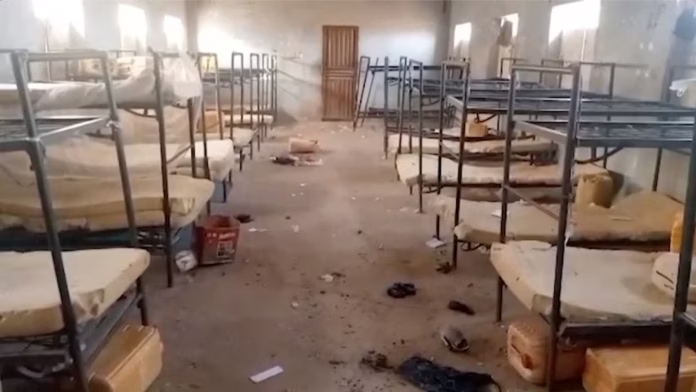One of the 25 schoolgirls abducted from the Government Girls Comprehensive Secondary School (GGCSS) in Maga, Danko/Wasagu Local Government Area of Kebbi State, has reportedly escaped from her captors and reunited with her family, the school principal confirmed on Tuesday.
The principal, Musa Rabi Magaji, said the student returned late Monday, hours after the terrorist attack that left one staff member dead and another injured. According to the principal, another student, who was not part of the 25 officially confirmed abducted, also escaped earlier and is safe.
“One is part of the 25 abducted, and the other one returned earlier. They are safe and sound,” Magaji said.
The abduction incident, which occurred around 4 a.m., has intensified national concern over the safety of children in schools, particularly in northern Nigeria, where attacks on educational institutions have become increasingly frequent over the past decade.
The attack on GGCSS was carried out by heavily armed bandits who reportedly engaged police officers stationed at the school in a fierce gun battle before scaling the school’s perimeter fence and forcibly removing the students from their hostel.
According to a statement from the Kebbi State Police Command, the attack left one staff member, Hassan Makuku, dead, while another staff, Ali Shehu, sustained a gunshot injury to his right hand. The incident was confirmed by the Police Public Relations Officer, CSP Nafi’u Abubakar Kotarkoshi.
“The attackers stormed the school early in the morning and engaged our officers on duty,” Kotarkoshi said. “Despite the resistance, the criminals overpowered security personnel and abducted the students. We are currently investigating the incident and intensifying efforts to rescue the victims.”
The abduction has sent shockwaves through the community, with parents and residents expressing fear and anxiety for the safety of the remaining girls still in captivity. Local authorities, security agencies, and community leaders are working to coordinate a rescue effort to bring the students back safely.
Kidnappings of schoolchildren have become a persistent security challenge in northern Nigeria. Over the past decade, schools have increasingly become targets for criminal gangs and armed jihadist groups operating in the region. The notorious abduction of 276 Chibok schoolgirls in Borno State in 2014 by Boko Haram drew international attention, highlighting the scale of the threat to education and children’s safety in the country.
Since then, similar attacks have been reported in Zamfara, Katsina, Kaduna, Niger, and other northern states. These attacks not only endanger the lives of students and teachers but also disrupt education, instill fear in communities, and strain security resources.
While some kidnappings are financially motivated, carried out by criminal gangs seeking ransom, others have political or ideological motivations, often orchestrated by armed groups with links to extremist networks. This complicates rescue efforts and increases the risk to victims.
The Kebbi State government, along with federal security agencies, has been called upon to respond urgently to the attack. Community leaders in Maga have urged authorities to strengthen security measures around schools, particularly in rural areas, to prevent further abductions.
Parents of the abducted students have expressed fear and anxiety, describing sleepless nights and ongoing trauma caused by the uncertainty of their children’s safety. The return of one of the abducted girls has brought a glimmer of relief, but the majority of the students remain in the hands of their captors.
“This incident is heartbreaking and unacceptable,” said one resident. “We need the government and security agencies to do everything possible to rescue our children and ensure that such attacks do not happen again.”
Northern Nigeria has faced growing security challenges over the past decade, including banditry, terrorism, and communal conflicts. School attacks are now part of a larger pattern of violence that threatens the social and economic development of the region.
The federal and state governments have faced criticism for the slow response to previous kidnappings and the lack of effective preventive measures. Security analysts stress the need for coordinated action, combining intelligence-led operations with community engagement, to safeguard schools and protect children.
The escape of the one Kebbi schoolgirl offers a rare positive development in an otherwise tragic incident, highlighting both the resilience of the victims and the urgent need for decisive action to rescue the remaining students.

